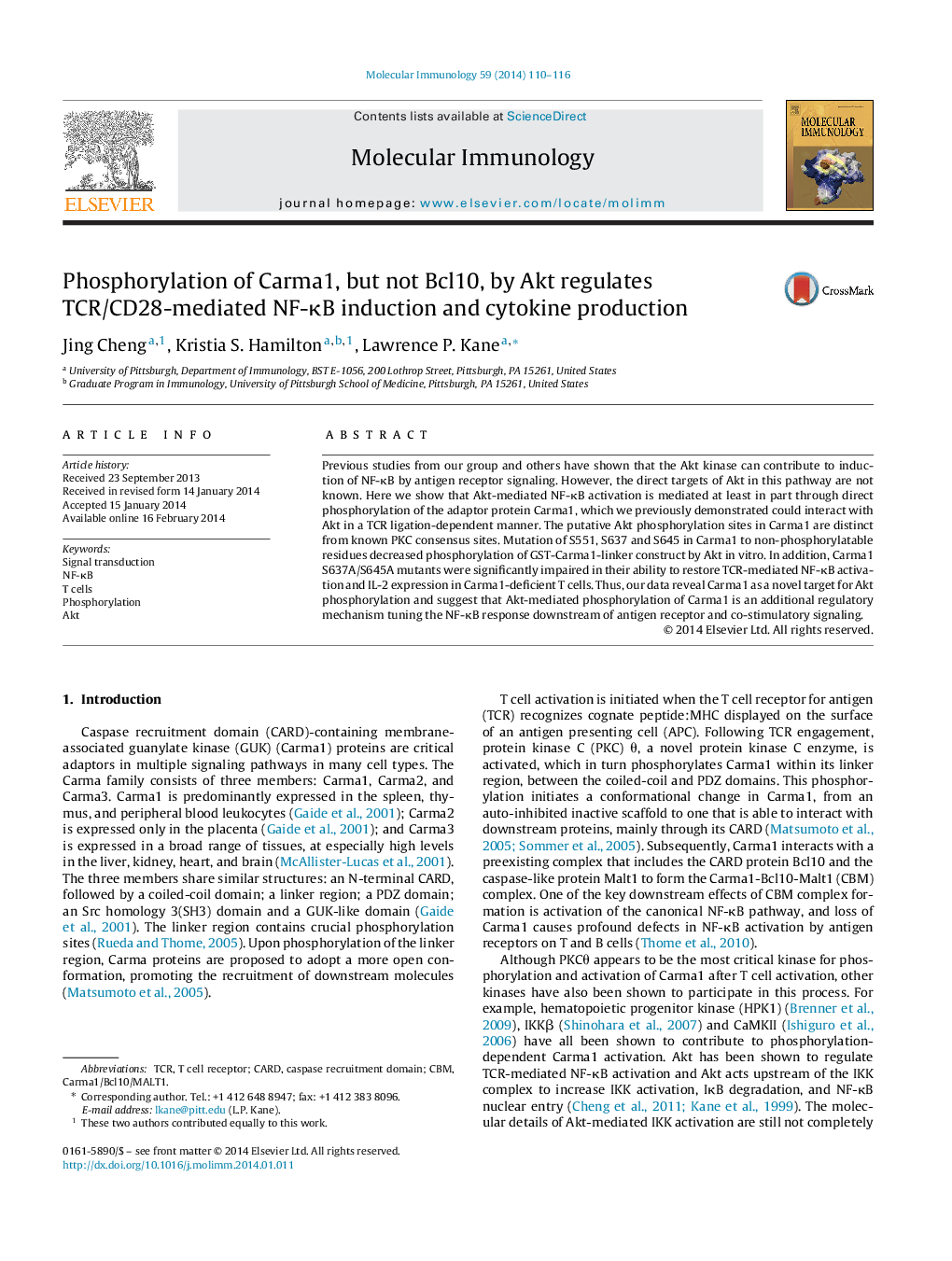| Article ID | Journal | Published Year | Pages | File Type |
|---|---|---|---|---|
| 2830857 | Molecular Immunology | 2014 | 7 Pages |
•S231 in Bcl10 conforms to an Akt consensus site, providing a possible link between Akt and NF-κB.•However, phosphorylation of Bcl10 S231 in T cells does not require Akt activity.•Akt can directly phosphorylate S551, S637 and S645 in human Carma1.•Mutation of S637 and S645 in Carma1 impairs TCR-dependent NF-κB induction and IL-2 secretion.•Phosphorylation of Carma1 down-stream of TCR is regulated in part by Akt.•Akt-mediated Carma1 phosphorylation may explain the effects of Akt on NF-κB signaling in T cells.
Previous studies from our group and others have shown that the Akt kinase can contribute to induction of NF-κB by antigen receptor signaling. However, the direct targets of Akt in this pathway are not known. Here we show that Akt-mediated NF-κB activation is mediated at least in part through direct phosphorylation of the adaptor protein Carma1, which we previously demonstrated could interact with Akt in a TCR ligation-dependent manner. The putative Akt phosphorylation sites in Carma1 are distinct from known PKC consensus sites. Mutation of S551, S637 and S645 in Carma1 to non-phosphorylatable residues decreased phosphorylation of GST-Carma1-linker construct by Akt in vitro. In addition, Carma1 S637A/S645A mutants were significantly impaired in their ability to restore TCR-mediated NF-κB activation and IL-2 expression in Carma1-deficient T cells. Thus, our data reveal Carma1 as a novel target for Akt phosphorylation and suggest that Akt-mediated phosphorylation of Carma1 is an additional regulatory mechanism tuning the NF-κB response downstream of antigen receptor and co-stimulatory signaling.
